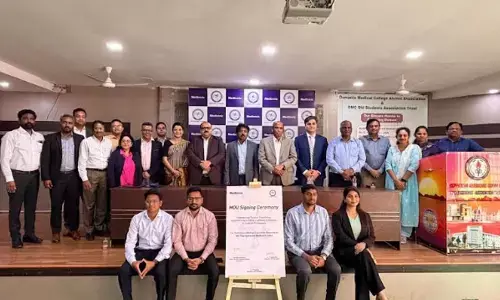Kashmir vulnerable to nature's fury

As Kashmir braces for what could be its second major flood in six months, residents are worried that inadequate flood-control infrastructure in the region could see them facing yet more death and devastation.
As Kashmir braces for what could be its second major flood in six months, residents are worried that inadequate flood-control infrastructure in the region could see them facing yet more death and devastation.

On Monday, the government of Jammu and Kashmir declared the region flooded after two days of incessant rains caused the waters of the Jhelum River to surge over the danger mark.
Landslides in the central district of Budgam buried several homes, killing 15 people. Another two people reportedly died in flash flooding in the state.
A break in the weather has since allowed the Jhelum River to recede back to safe levels, but meteorologists predict heavy rains will return over the coming week.
"Given the weather forecast for the next few days, the flood threat is staring us in the face,” said Majid Rashid, a resident of the capital Srinagar.
In a region still reeling from massive flooding in September that killed more than 300 people, residents blame the government for not doing enough, quickly enough, to safeguard its citizens.
"We haven’t witnessed any serious effort from the government to prevent floods, despite what happened last year," said Mehraj Nakash a shopkeeper in Srinagar’s business hub Lal Chowk.
COSTLY LESSON
The government insists it has learned from last year's flooding, which caused an estimated $16 billion worth of damage to the Kashmir region.
The state's flood-control department points to work it has already started on increasing the carrying capacity of the Jhelum and its flood spill channel (FSC).
The $3.4 billion project, 70 percent of which is to be funded by the central government, involves building a new 82-kilometre-long spill channel to help cope with future flooding.
In total, the project would increase the capacity of the Jhelum and its flood channels from the current 43,000 cubic feet per second to 120,000 cubic feet per second.
“The project for increasing the carrying capacity of the Jhelum and the FSC is part of a comprehensive flood-control project for which we have got some interim funding and are expecting more in a few weeks from the central government,” said Javid Jaffer, Kashmir’s chief engineer for flood control.
Designed to carry excess water from the Jhelum to Wullar Lake in north Kashmir, the supplementary Dogripora-Wullar spill channel would cut through over 2,200 acres of mainly agricultural land.
To some villagers, the security that project offers is worth sacrificing part of their farms.
“If some portion of my land comes under the flood channel I will consider giving it if I am properly compensated,” said Ramzan Lone, who lives in Kakapora.
But others worry that the project could put them in greater danger, by bringing the river's excess water closer to their homes.
"How would we be sure that the flood channel's banks wouldn't break?" asked Kawoosa villager Mohammad Subhan.
WORSENING RISK
With scientists warning that climate change-related floods will occur more frequently in the future, experts in Kashmir agree that the region needs an alternate flood channel.
An article published in Scientific American in March says worsening river floods will hit Asia - and particular India – hardest over the coming years.
Kashmir’s own Department of Environment, Ecology and Remote Sensing has predicted that over the next 25 years the number of rainy days in the Himalayan region may increase by more than 15 days per year in Jammu and Kashmir.
But some experts are not convinced that the government's current plan to increase the Jhelum River's capacity will work.
Syed Madni, former chief engineer of Kashmir’s flood control department, says cost factors such as the need to relocate villagers and buy up land make the new flood channel unfeasible.
And Shakil Romshoo, head of the earth sciences department at Kashmir University, is concerned that the proposed new spill channel doesn't have enough of a downhill angle to carry floodwater away quickly enough.
According to flood control chief engineer Jaffer, the government is already looking at alternative solutions to the new spillway while waiting for the results of a feasibility study being carried out by the Flood Control Department, with experts from Kashmir University.
He suggests possibly using reservoirs or dams to hold water coming from the Jhelum's tributaries during times of imminent flooding – which would ease pressure on the river itself - and then releasing it in a controlled manner once the threat of flooding subsides.
EARLY WARNING NEEDED?
As well as finding ways to deal with flooding, the government says it is determined to get better at predicting floods before they happen.
Authorities at the Indian Meteorological Department (IMD) say they are improving Kashmir's weather forecasting system through broadening its network of observational equipment.
"Strengthening of the network is one of our top priorities,” said Sonum Lotus, the regional director of IMD in Srinagar.
According to Lotus, by June the department will have added 21 automatic weather stations to the six already being used across the region and will have installed three new weather radars to relay real-time information from inaccessible sites.
“If we had such a network in place before last year’s floods, it could have helped people and the government make better decisions,” Lotus said.
But many Kashmir residents feel the government's priority should be protecting people against floods, regardless of whether or not they can see them coming.
“Establishing a network of early warning systems is good … but we are more worried about flood control,” said Yasin Khan, president of the Kashmir Traders’ and Manufacturers’ Federation, which has asked the Kashmir government to compensate traders for the losses they suffered in last September’s floods.
“If there was fool-proof flood control in place, we would not have had to rebuild our lives," he said. "And there would have been no need for us to plead before the government now."
Next Story

















